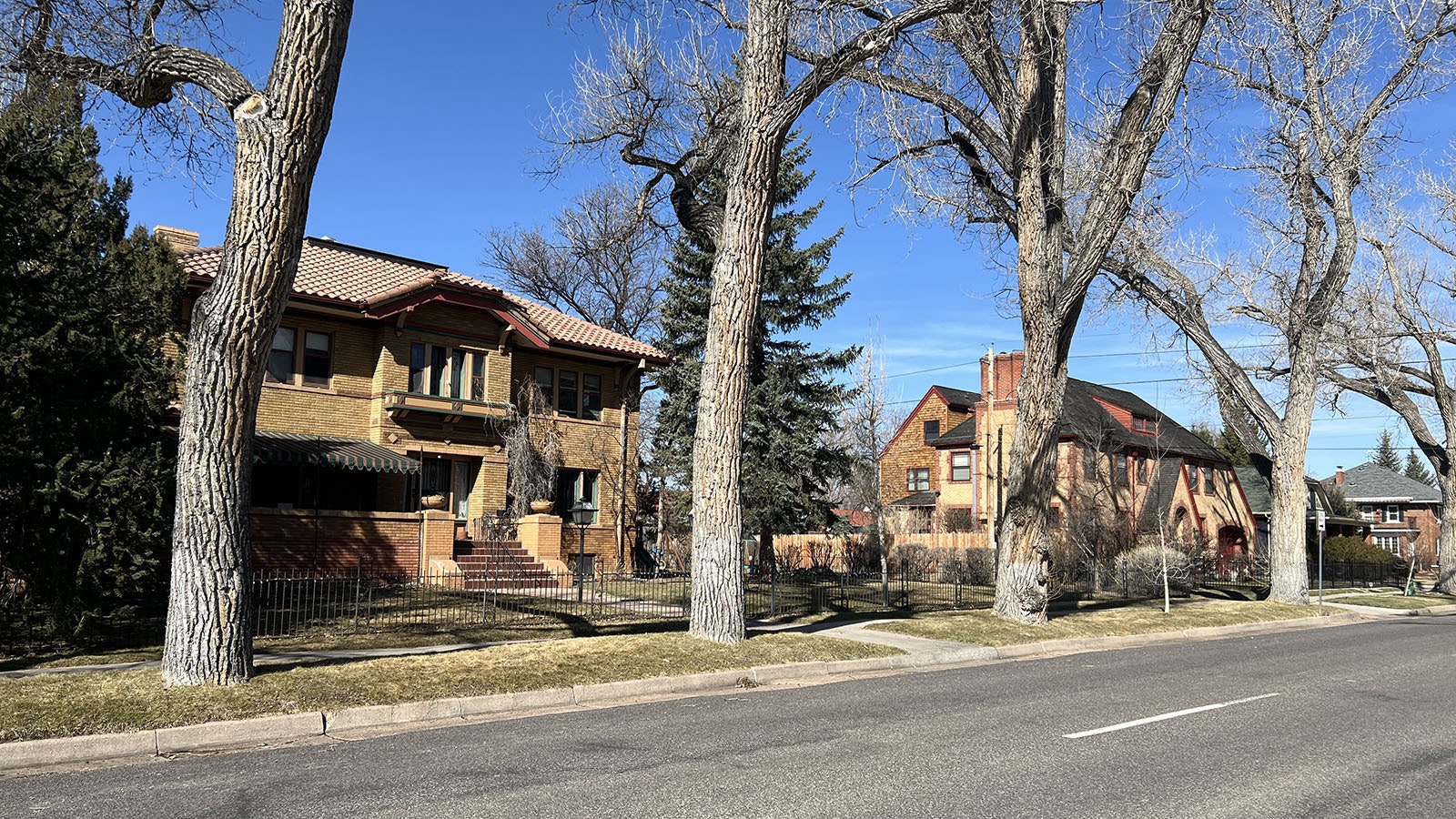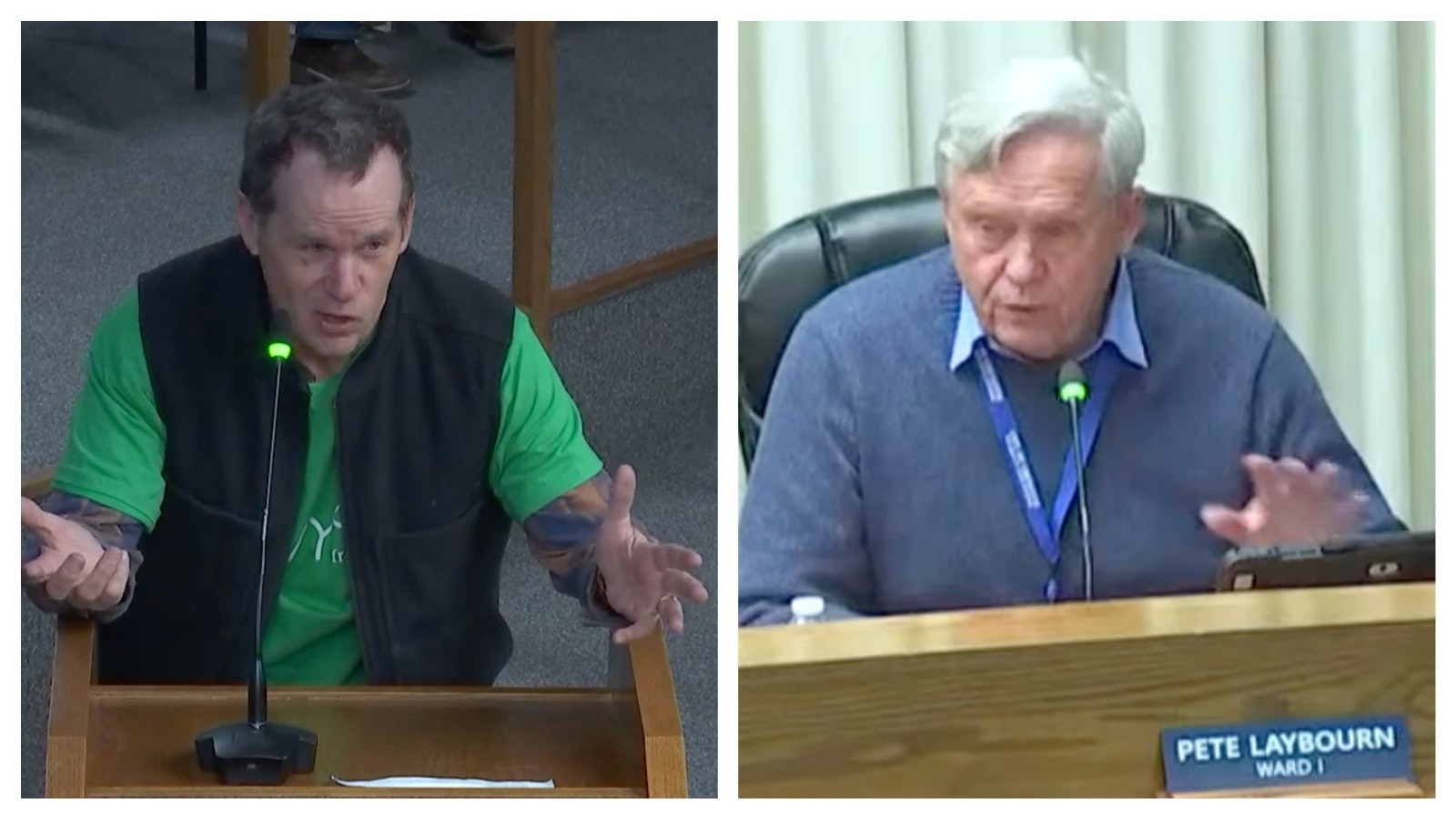Although he signed four property tax bills into law Thursday, Gov. Mark Gordon vetoed another that would have likely provided the most extensive property tax relief of all the bills that were sitting on his desk.
Gordon vetoed Senate File 54, a bill that would have exempted 25% of assessed value up to $2 million of a home’s value, calling it “a socialistic type of wealth transfer.”
The governor explained in his veto letter that he thinks the bill would have provided a temporary relief and been very expensive to all Wyoming homeowners at the expense of the state’s energy industry, retail and manufacturing sectors.
“This bill could be considered an example of the electioneering exuberance of the recent legislative session,” Gordon wrote in his veto letter, adding that it’s “feel-good policy that overcomes common sense. A sober assessment of what is Wyoming's best overall interest is called for, one which recognizes future generations should never have to pay for our own self-indulgence.”
Costs And Figures
The bill was forecasted to reduce property taxes statewide by about $220 million and had bipartisan support, scheduled to go into effect immediately and set to expire in 2026.
As a result of COVID-19 influenced property tax increases seen from 2020-2023, the state saw $268 million in increased revenue.
“The goal of SF 54 was to leave some of that money in the pockets of low- and middle-income families over the next two years,” said state Rep. Liz Storer, D-Jackson, one of the major supporters of the bill. “It was targeted, it was reasonable, and it was fair.”
Storer said the bill would have provided homeowners enough savings over the next two years to almost cover the amount of extra taxes they paid from 2020-2023.
SF 54 would have also provided up to $225 million in state money to cover the hit it was expected to make for local communities and schools as a result of the reduced tax revenue.
Gordon mentioned in his veto letter how mineral revenue provides most of Wyoming’s money, and that these entities would not be compensated with any kind of tax exemption. He called that arrangement a “Bidenomic-type of tax relief” that he “would expect from Washington, D.C., liberals, not conservative Wyoming legislators.”
“Importantly, the state backfill would be of no relief to the taxpayers who paid them, but instead would go to property owners generally,” Gordon wrote in his veto letter. “Such a wealth redistribution scheme would be a socialistic-type of wealth transfer, mostly from the energy sector, to Wyoming homeowners.”
Storer called the governor’s take “absurd and cynical.”
Rep. John Bear, R-Gillette, also criticized Gordon’s veto Friday, and said the real underlying problem is that the Legislature is saving too much money instead of giving it back to taxpayers through more extensive tax relief.
“Stop putting more into state savings and give the taxpayers some relief,” Bear said. “Stop growing government on the backs of the people.”
Solutions Moving Forward
Gordon finished out his veto letter encouraging legislators to continue studying the issue of property taxes, which may evolve as a result of a constitutional amendment going before voters this fall to add a fourth class of taxation for residential properties.
“I encourage the Legislature to focus on finding a conscientious approach that provides responsible property tax relief, without jeopardizing our state's and our local governments' financial health or transferring wealth from one group of taxpayers to another,” Gordon wrote.
Bear dismissed this solution, calling it “a joke” that distracts from the issue of overall government spending.
Storer said Gordon’s veto shows why reform to the underlying tax structure in Wyoming is needed.
Signs Into Law Four Relief Bills
Gordon also signed three property tax bills Thursday.
“I am happy to sign this package of legislation, which provides targeted relief to taxpayers most impacted by increasing valuations, while ensuring our counties and schools are able to continue to provide the services our residents rely on,” Gordon said in a Thursday press release. “There was an identified need, and this Legislature responded to that.”
House Enrolled Act 54 puts a permanent 4% cap on all year-to-year property tax increases and will go into effect next year. It is unknown how much this bill will cost the state as it is based on future fluctuations in the market, but if it had been in effect for 2023, it would have reduced property taxes by $49.5 million.
Gordon also signed House Enrolled Act 44, which provides a 50% tax exemption for people age 65 and older who have paid property taxes in Wyoming for more than 25 years. This bill will go into effect next year and expire in 2027.
Gordon also allowed House Enrolled Act 52 to pass into law, but did so while making a line-item veto to it. As written, this bill would have expanded Wyoming’s property tax refund program to people who make up to 165% of the median income for the state or their local county. Gordon reduced the top qualifying income bracket to 145% of median income.
In his line-item veto letter, Gordon explained that the legislation goes too far, that people making more than $200,000 a year in Teton County could have qualified for a 25% tax refund, which he believes amounts to a “hand out,” not a “hand up,” as the program originally intended. He also expressed concern that the $20 million he requested in his biennial budget proposal for this program would not be enough money to cover the bill.
Gordon also signed Senate Enrolled Act 61, which increases the annual ad valorem tax exemption for veterans in Wyoming from $3,000 to $6,000.
Leo Wolfson can be reached at leo@cowboystatedaily.com.





